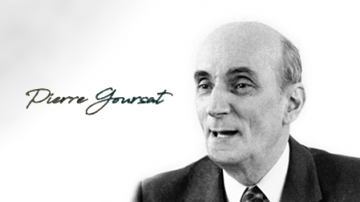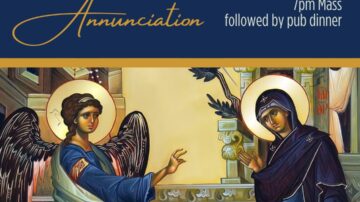« The future of the Church depends on it » Cardinal Kevin Farrell
From 16 to 18 February, a congress was held in Rome, organised by the Dicastery for the Laity, Family and Life. The theme of these days of work, which brought together 200 participants from all over the world, was “Pastors and lay faithful, called to walk together”: an urgent invitation to carry together, priests and lay people, the responsibility of mission in the Church. This perspective emphasises the need for the formation of the laity.
Michel-Bernard de Vregille, moderator of the Emmanuel Community, and Véronique and Benoit Rabourdin, international leaders of Amour et Vérité, took part.
 Struck by the “simplicity and humour of Pope Francis”, Michel-Bernard de Vregille wanted to emphasise first of all “the incredible richness of the assembly, marked by a great diversity of people, which was the breeding ground for a very beautiful Church meeting. The times planned for meetings between people allowed us to experience that communion in the Church is first and foremost a communion between people.
Struck by the “simplicity and humour of Pope Francis”, Michel-Bernard de Vregille wanted to emphasise first of all “the incredible richness of the assembly, marked by a great diversity of people, which was the breeding ground for a very beautiful Church meeting. The times planned for meetings between people allowed us to experience that communion in the Church is first and foremost a communion between people.
 Benoit and Véronique Rabourdin confirm this: “We saw the difference between the first and last day. At the beginning, the priests and bishops were very much among themselves, then as time went by, they came to see the laity, they mixed with us. In the end, they would come and sit at our table and talk. Something like an inner relaxation took place. Many priests, from very clerical churches in their countries, came to thank us for being there. It was very beautiful.
Benoit and Véronique Rabourdin confirm this: “We saw the difference between the first and last day. At the beginning, the priests and bishops were very much among themselves, then as time went by, they came to see the laity, they mixed with us. In the end, they would come and sit at our table and talk. Something like an inner relaxation took place. Many priests, from very clerical churches in their countries, came to thank us for being there. It was very beautiful.
"Synodality is the way God shows the Church."
Pope Francis
So what happened that made this new kind of fraternity possible for many of the participants? Michel-Bernard explains that the introduction by Cardinal Farrell, Prefect of the Dicastery for the Laity, Family and Life, “set the scene”. Indeed, he adds, “the Cardinal affirmed that the expression ‘walking together’ signifies the reality of a co-responsibility of laity and clergy in a true synodal church. Synodality, which according to the Pope, is “the way God shows the Church.”
"The laity must not be the 'sleeping giant'!"
Fr. Navarro
 For the moderator of the Emmanuel Community, “co-responsibility simply means that pastors and lay people together carry the life and mission of the Church. All the baptized, whatever their responsibility, are called to work together for the common good of the Church and its fruitfulness, without superiority of one over the other. And the laity must take their full place. Father Navarro recalled an edifying figure: of the almost one billion four hundred million Catholics in the world, 99.99% are lay people. And he had this striking challenge: the laity must not be the “sleeping giant”!
For the moderator of the Emmanuel Community, “co-responsibility simply means that pastors and lay people together carry the life and mission of the Church. All the baptized, whatever their responsibility, are called to work together for the common good of the Church and its fruitfulness, without superiority of one over the other. And the laity must take their full place. Father Navarro recalled an edifying figure: of the almost one billion four hundred million Catholics in the world, 99.99% are lay people. And he had this striking challenge: the laity must not be the “sleeping giant”!
“The need to enhance the role of the laity is not based on some theological novelty, or due to the shortage of priests, much less a desire to make up for their neglect in the past. Rather, it is grounded in a correct vision of the Church, which is the People of God, of which the laity, together with the ordained ministers, are fully a part. The ordained ministers, then, are not masters, they are servants: shepherds, not masters.”
Pope Francis
In order to awaken the giant, the Congress highlighted the need and importance of training. “Not just theoretical or theological training, but training for the mission,” explained Véronique Rabourdin. For this co-responsibility has only one stake, evangelisation, as Pope Francis reminded us: “Synodality finds its source and its ultimate goal in the mission: it is born of the mission and is oriented towards the mission.
It is in this spirit that Véronique and Benoit gave their testimony, in the name of Amour et Vérité, with its 40 years of experience: “Rome asked us to share our experience of collaboration between priests and laypeople, which is in the DNA of Amour et Vérité but also of the Emmanuel Community. We thus shared how the theological or exegetical formation of priests could be precious to us in order to understand the magisterium of the Church, especially on questions of sexuality, and at the same time how the experience of the field lived concretely by the laity allowed priests to avoid having a vision that was out of touch and disconnected from the reality. This dialogue between priests and lay people is a safeguard against an ideological vision of the faith that Pope Francis denounces as “a plague”.
Forming oneself for the mission implies forming oneself together, priests and lay faithful, each in their own role and without confusion. For the Rabourdins, “we must accelerate awareness because the future of the Church depends on it, as Cardinal Farrell reminded us. The time when it was clerics and religious who went on mission to evangelise is now over. If the laity are not on mission with the clergy and religious, the world will be deprived of evangelisation. The Church asks the laity to set themselves in motion, to form themselves with the priests, in a missionary perspective and this is urgent!
An urgency that responds to our vocation as baptized Christians, as expressed by Pope Francis: “In this one People of God that is the Church, the fundamental element is our belonging to Christ. In the moving accounts of the Acts of the early martyrs, we often find a simple profession of faith: “I am a Christian”, they would say “and thus I cannot sacrifice to idols”.(…) Today too, in a world that is increasingly secularized, what truly distinguishes us as the People of God is our faith in Christ, not our state of life considered in itself. We are the baptized; we are Christians; we are the disciples of Jesus. Everything else is secondary. “But, Father, also being a priest?” — “Yes, that too is secondary” — “And what about a bishop?” — “Yes, that is secondary” — “Even a Cardinal?” — “That too is secondary”. Our common belonging to Christ makes us all brothers and sisters.”
Some concrete ways of living co-responsibility
Excerpt from Pope Francis’ speech
This experience of shared responsibility between laypersons and pastors will help to overcome dichotomies, fears and reciprocal mistrust. Now is the time for pastors and laypersons to move forward together, in every sphere of the Church’s life and in every part of the world! The lay faithful are not “guests” in the Church; it is their home and they are called to care for it as such. Laypersons, and women in particular, must be better appreciated for the skills and for the human and spiritual gifts they bring to the life of parishes and dioceses. They can assist, with their “everyday” language, in the proclamation of the Gospel by engaging in various forms of preaching. They can cooperate with priests in training children and young people, helping engaged couples in preparation for marriage, and accompanying couples in marital and family life. They should always be consulted whenever new pastoral initiatives are planned at all levels, local, national and universal. They should be given a voice in the pastoral councils of the particular Churches and should be present in diocesan offices. They can assist in the spiritual accompaniment of other laypersons and contribute to the training of seminarians and religious. Once I heard a question: “Father, can a layperson be a spiritual director?”. Indeed it is a lay charism! A spiritual director may be a priest, but the charism is not priestly as such; spiritual accompaniment, if the Lord gives you the spiritual ability to do so, is a lay charism. Together with their pastors, laypersons must bring Christian witness to secular life: to the worlds of work, culture, politics, art and social communications.
We could put it this way: laity and pastors together in the Church, laypersons and pastors together in the world.







